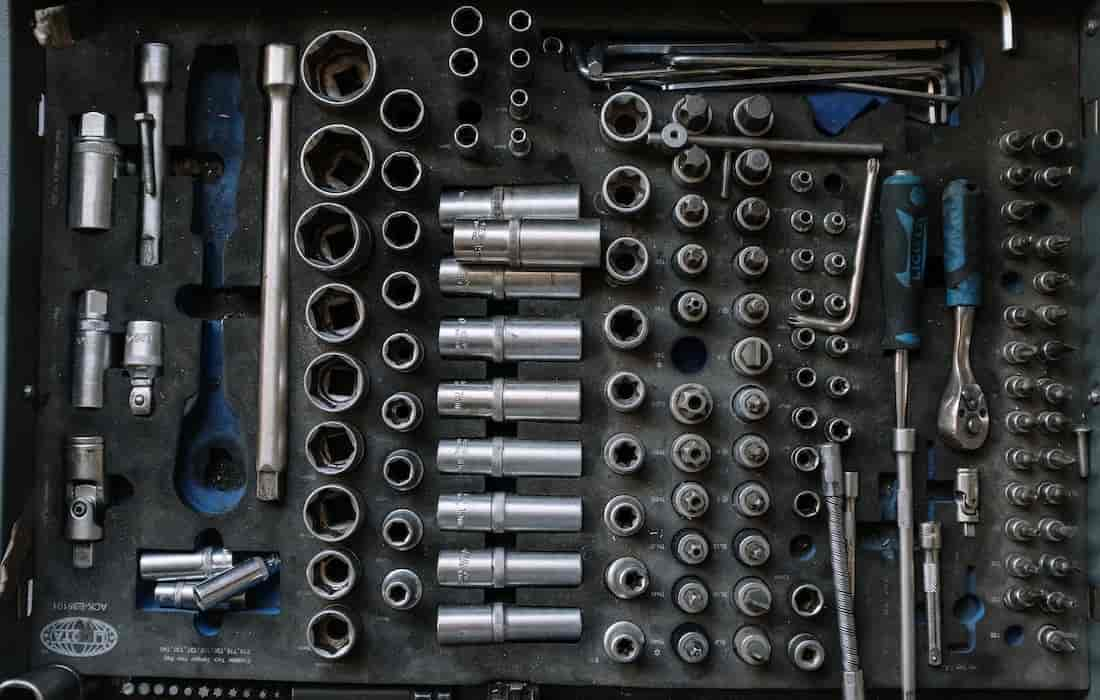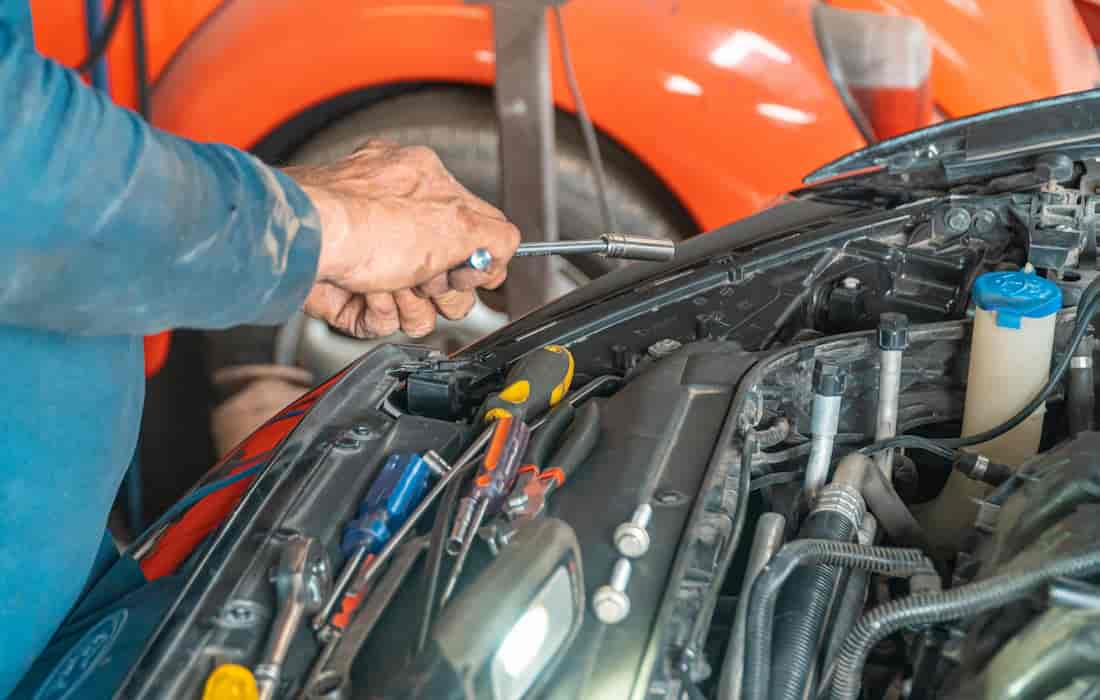One of your most significant duties as a car owner is to keep your vehicle in excellent working order. Maintaining your automobile regularly ensures that it functions smoothly and increases its lifespan. Car maintenance mistakes may result in expensive repairs, breakdowns, and even accidents.
We’ll cover some crucial automobile maintenance advice in this article to help you keep your vehicle in great condition. We will go over all the fundamentals of automobile care that every car owner should be aware of, from checking your tire pressure to changing your oil. These suggestions will help you keep your automobile in top shape and guarantee it works smoothly for many years to come.
Car Maintenance Checks

It’s essential to do routine auto maintenance inspections to keep your automobile functional and safe on the road. It’s important to regularly inspect your automobile, making sure to check the tires, brake pads, and other crucial parts. You may prevent failures, discover possible issues early, and save money on repairs by doing these inspections.
Regular auto maintenance may also lengthen the lifespan and increase the fuel efficiency of your vehicle. You can maintain your automobile operating smoothly and save money over time by carrying out these inspections at least once every three months or as instructed by your car’s maker. Don’t put off maintaining your automobile; it’s a minor expenditure that may help keep you safe and save you money.
Maintenance Check List
1. Oil Change and Filter Replacement
Your automobile needs regular oil changes and filter replacements to function smoothly and effectively. Engine wear and tear can be caused by contaminants in engine oil that accumulate over time and pollute it. Moreover, a clogged oil filter can reduce oil flow and harm an engine. You can keep your engine in good working order and avoid expensive repairs by changing your oil and filter every 3,000 to 5,000 miles or as directed by your car’s manufacturer. Regular oil changes can also lengthen the lifespan and increase the fuel efficiency of your vehicle. Plan your next oil change and filter replacement now to avoid skipping this important maintenance step.
2. Tire Maintenance
Never neglect the importance of tire care when doing routine auto maintenance. Tire maintenance done correctly may increase your car’s fuel economy, increase the life of your tires, and increase your safety while driving. Regular tire pressure checks are crucial because underinflated or overinflated tires can damage your car’s handling and fuel efficiency. Also, you must check your tires for wear and damage indicators like cracks and bulges, and replace them if necessary. Regular tire rotation can also assist to reduce uneven wear and increase tire longevity. You can increase the performance and safety of your automobile on the road by taking good care of your tires.
3. Brake Inspection
Brake examination is an important element of vehicle maintenance that should never be disregarded. Your car’s braking system is in charge of your safety on the road, therefore it must be in excellent working order. Frequent brake checks may aid in the early detection of possible problems such as worn brake pads, broken rotors, or leaking brake fluid. Neglecting brake maintenance can result in braking failure, which can cause accidents and expensive repairs. You can maintain your safety on the road and extend the life of your braking system by having your brakes tested regularly by a skilled technician and replacing old or broken brake components as needed. Don’t risk your brakes; schedule a brake check immediately.
4. Battery Check
A battery check is an important aspect of automobile maintenance that should not be overlooked. Your car’s battery is in charge of starting your vehicle, and if it fails, you might be stuck. Frequent battery checks can assist you in identifying possible problems such as low battery levels, corrosion, or loose connections. Neglecting battery care might result in a dead battery and pricey replacements. By having your battery tested by a skilled technician regularly, you can guarantee that it is in excellent working order and replace it before it fails. Also, taking care of your battery may increase its life and avoid unexpected problems. Don’t wait for your battery to fail; schedule a battery check immediately.
5. Fluid Level Check
Frequent fluid level checks are an important element of automobile maintenance since they may help you avoid expensive repairs and keep your car operating smoothly. Fluids in your automobile, such as engine oil, transmission fluid, and braking fluid, are in charge of lubricating, cooling, and operating numerous components. Overheating, engine damage, and other issues might result from neglecting fluid maintenance. By monitoring your car’s fluid levels regularly and topping them off as needed, you can guarantee that your car’s components are working properly and prevent damage. Don’t put it off until it’s too late; schedule a fluid level check today to preserve the longevity and functionality of your vehicle.
DIY Car Maintenance Tips

DIY auto maintenance may be an excellent method to save money on repairs while also keeping your vehicle in good working order. Nonetheless, it is critical to understand your limitations and only conduct maintenance activities that you are comfortable with. Checking your tire pressure, changing your oil and filter, and replacing your windshield wipers are some fundamental DIY auto maintenance suggestions. You may also increase performance by cleaning your car’s air filter and battery connections. For more intricate maintenance jobs, however, it is preferable to seek the assistance of a professional technician. You can extend the life of your automobile and save money on costly repairs by completing simple DIY car maintenance on a regular basis.
DIY Maintenance Check List
1. Basic Tools for DIY Maintenance
Possessing the correct tools is vital for DIY vehicle repair. A socket wrench set, pliers, screwdrivers, a jack and jack stands, and a torque wrench are all necessary instruments. You may also require an oil filter wrench, a spark plug socket, and a tire pressure gauge. These items can assist you in doing simple maintenance jobs such as oil changes, tire rotations, and brake pad replacements. Investing in these items can save you money in the long term and help you keep your automobile in great shape.
2. Replacing Air Filters
Changing your car’s air filter is an important maintenance activity that may enhance the performance and fuel economy of your vehicle. A blocked or filthy air filter can impede engine airflow, resulting in decreased power and gas mileage. Changing your air filter every 12,000 to 15,000 miles will help preserve the longevity and performance of your vehicle.
3. Replacing Spark Plugs
Checking and changing your car’s spark plugs is an important maintenance chore that may enhance the performance and economy of your vehicle. Misfires, lower power, and poor fuel efficiency can all be caused by worn or broken spark plugs. Changing your spark plugs every 30,000 to 100,000 miles will help preserve the longevity and performance of your vehicle.
4. Changing Wiper Blades
Replacing the wiper blades on your automobile is a basic maintenance activity that may substantially enhance your vision when driving in rainy weather. Wiper blades that are worn or broken can cause streaks and limit vision, making it difficult to see while driving. Replacing your wiper blades every six months will assist assure your driving safety.
5. Cleaning Headlights and Taillights
Cleaning your car’s headlights and taillights is an important maintenance activity that may help you see better at night. Dirty or foggy headlights can lower the amount of light that reaches the road, making driving more challenging. Regularly cleaning your headlights and taillights may assist assure your safety on the road.
Professional Car Maintenance Services

Professional automobile maintenance services are critical to maintaining your vehicle in good shape. By sending your automobile to a trained technician regularly, you may detect any problems early on and save costly repairs later on. Oil changes, tire rotations, brake inspections, and fluid level checks are all regular professional automobile maintenance services. More difficult repairs, including engine and gearbox overhauls, suspension and steering repairs, and electrical system diagnostics, can also be performed by professional technicians. Entrusting your automobile to a professional ensures that it is in excellent hands and that you are receiving expert guidance on how to keep it operating properly.
Car Maintenance Tips for Different Seasons
1. Winter Car Maintenance Tips
Winter automobile maintenance is necessary to guarantee that your vehicle can withstand adverse weather conditions. Check your batteries, tires, and windshield wipers, switch to winter tires, and use cold-season oil. In addition, have a winter emergency pack in your car, which should include goods like a shovel, blankets, and refreshments. You can stay safe on the road and avoid breakdowns and accidents by prepping your vehicle for winter conditions.
2. Summer Car Maintenance Tips
Summer car maintenance is essential to keep your vehicle running properly under hot weather conditions. Checking your coolant levels, air conditioning system, and tire pressure, as well as replacing your cabin air filter, are some fundamental summer automobile maintenance advice. You should also keep your car’s exterior clean and waxed to protect it from the sun’s damaging UV rays. By prepping your automobile for summer weather, you can be comfortable and safe on the road.
3. Rainy Season Car Maintenance Tips
Rainy season car maintenance is crucial to guarantee your vehicle can withstand the elements. Checking your windshield wipers, tires, and brakes, keeping your headlights and taillights clean, and applying rain repellent on your windshield are some fundamental rainy season automobile maintenance advice. To prevent water from entering the engine, avoid driving over deep puddles. You can stay safe on the road and avoid accidents by prepping your automobile for wet weather.
Conclusion
Proper automobile maintenance is essential for keeping your vehicle operating smoothly and avoiding costly problems. You can keep your automobile in great form by following some basic car maintenance guidelines, such as checking your oil and fluid levels, maintaining your tires, and replacing your air filter. Taking your automobile to a professional for regular maintenance may also assist discover any problems early and keep your car running at peak performance. You can save money and protect your safety on the road by investing in auto maintenance.










My friends and I are going on a road trip next week, and I want to make sure the car is ready for the long drive so that we won’t have to worry about encountering problems while on the road. I appreciate you letting us know that summer maintenance is vital for cars to ensure they run properly under hot weather, so this usually involves checking coolant levels and tire pressure. I’ll take note of this while I look for an auto service to hire for maintenance before we leave for our trip.
You can as well check our article on Top Car Accessories to Enhance Your Road Trip Experience